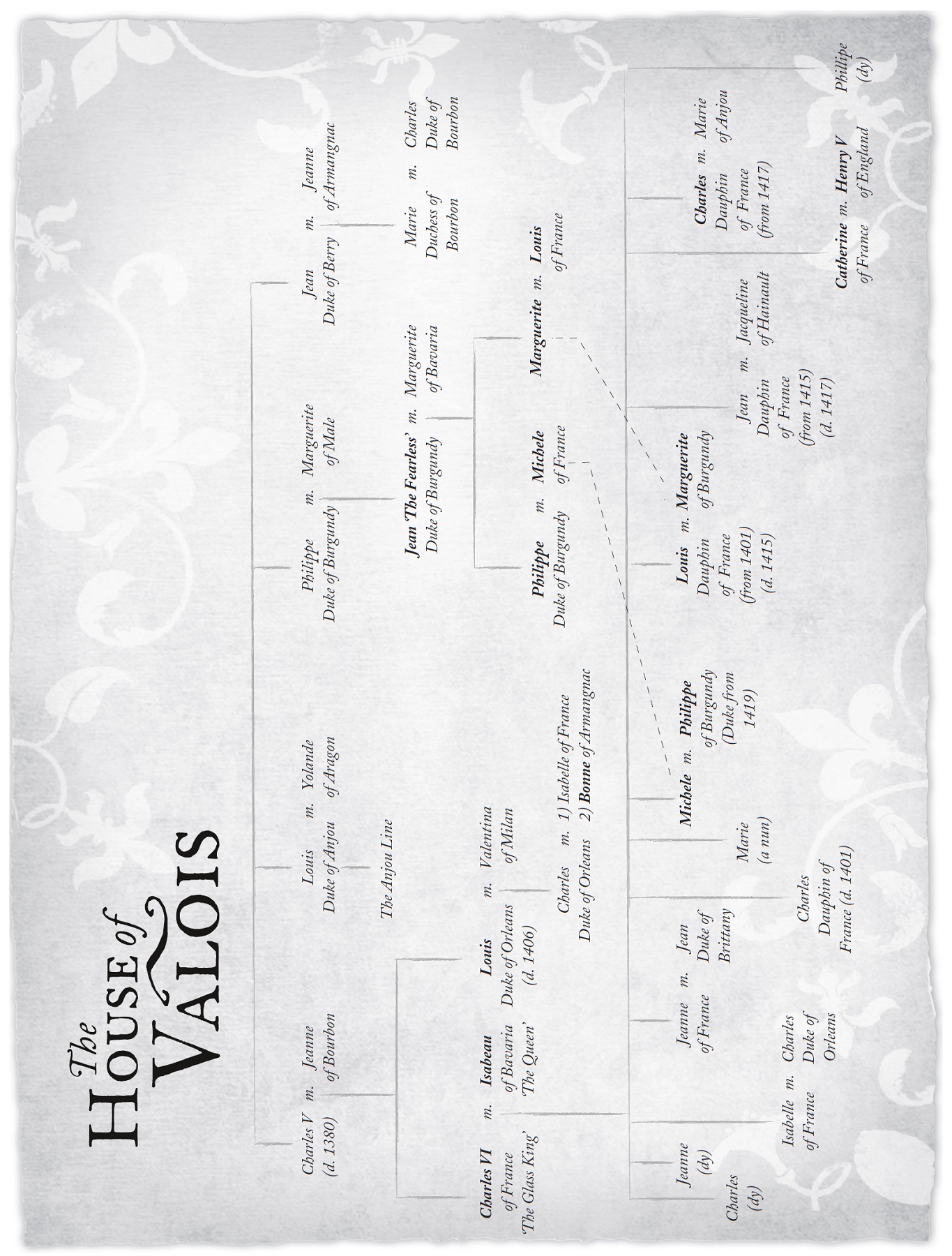
Полная версия
The Agincourt Bride

JOANNA HICKSON
The Agincourt Bride


Copyright
This novel is entirely a work of fiction.
The names, characters and incidents portrayed in it are the work of the author’s imagination. Any resemblance to actual persons, living or dead, events or localities is entirely coincidental.
HarperCollinsPublishers Ltd.
1 London Bridge Street
London SE1 9GF
www.harpercollins.co.uk
Copyright © Joanna Hickson 2013
Joanna Hickson asserts the moral right to be identified as the author of this work
A catalogue record for this book is available from the British Library
All rights reserved under International and Pan-American Copyright Conventions. By payment of the required fees, you have been granted the non-exclusive, non-transferable right to access and read the text of this ebook on-screen. No part of this text may be reproduced, transmitted, down-loaded, decompiled, reverse engineered, or stored in or introduced into any information storage and retrieval system, in any form or by any means, whether electronic or mechanical, now known or hereinafter invented, without the express written permission of HarperCollins ebooks
HarperCollinsPublishers has made every reasonable effort to ensure that any picture content and written content in this ebook has been included or removed in accordance with the contractual and technological constraints in operation at the time of publication
Source ISBN: 9780007446971
Ebook Edition © JANUARY 2013 ISBN: 9780007446988
Version: 2017-10-18
Dedication
For Ian and Barley – the two who share my life, thank goodness.
The House of Valois

Epigraph
“It is written in the stars that I and my heirs shall rule France and yours shall rule England.
Our nations shall never live in peace. You and Henry have done this.”
Charles, Dauphin of France
Table of Contents
Cover
Title Page
Copyright
Dedication
The House of Valois
Epigraph
Narrator’s Note
Part One
Chapter 1
Chapter 2
Chapter 3
Chapter 4
Chapter 5
Part Two
Chapter 6
Chapter 7
Chapter 8
Chapter 9
Chapter 10
Chapter 11
Chapter 12
Chapter 13
Chapter 14
Chapter 15
Chapter 16
Part Three
Chapter 17
Chapter 18
Chapter 19
Chapter 20
Chapter 21
Chapter 22
Chapter 23
Chapter 24
Chapter 25
Chapter 26
Chapter 27
Chapter 28
Chapter 29
Chapter 30
Part Four
Chapter 31
Chapter 32
Chapter 33
Chapter 34
Chapter 35
Chapter 36
Chapter 37
Chapter 38
Keep Reading
Acknowledgements
Extract from The Tudor Bride
About the Author
About the Publisher
NARRATOR’S NOTE
January 1439
Respected reader,
Before we embark on this story together, I think I should explain that I am not a historian or a chronicler or indeed any kind of scholar. I did not even read Latin until my dear and present husband undertook to teach me on dark winter nights by the fire in our London house, when a more dutiful goodwife would have been doing her embroidery. Luckily my days of being dutiful are behind me. I am now fifty-two years of age and I have had quite enough of stitching and scrubbing and answering becks and calls. I have been a servant and I have been a courtier and now I am neither so I have become a scribe, for one good reason; to tell the story of a brave and beautiful princess who wanted the impossible – to be happy. Of course, here at the start of the tale, I am not going to tell you whether she succeeded but I can tell you that some momentous events, scurrilous intrigues and monstrously evil acts conspired to prevent it.
Two things encouraged me to write this story. The first was those Latin lessons, for they enabled me to read the second, which was a cache of letters found when I used a key entrusted to me for safekeeping by my beloved mistress, the aforementioned princess, to open a secret compartment in the gift she bequeathed to me on her untimely death. These were confidential letters, written at turbulent times in her life, and she was never able to send them to their intended recipients. But they filled gaps in my knowledge and shed light on her character and the reasons she chose the paths she followed.
Sadly, for the most part, she was powerless to shape the direction of her own life, however hard she tried. But there were one or two occasions when she, and I too by extraordinary circumstance, managed to steer the course of events in a direction favourable to us both, although this was never recorded in the chronicles of history.
I do not have much time for chroniclers anyway. They invariably have a hidden agenda, observing events from one side only, and even then you cannot trust them to get a story right. Some are no better than the ink-slingers who nail their pamphlets to St Paul’s Cross. One of them got my name wrong when he recorded the list of my mistress’ companions back in the days of Good King Harry. ‘Guillemot’ he called me, if you can believe it! Who but a short-sighted, misogynistic monk would saddle a woman with the same name as an ugly black auk-bird? But there it is, in indelible ink, and it will probably endure into history. I beg you, respected reader, do not fall into the trap of believing all you read in chronicles, for my name is not Guillemot. What it is you will discover in the story I am about to tell …

PART ONE
Hôtel de St Pol, Paris
The Court of the Mad King
1401–5
1
It was a magnificent birth.
A magnificent, gilded, cushioned-in-swansdown birth which was the talk of the town; for the life and style of Queen Isabeau were discussed and dissected in every Paris marketplace – her fabulous gowns, her glittering jewels, her grand entertainments and above all the fact that she rarely paid what she owed for any of them. The fountain gossips deplored her notorious self-indulgence and knew that, like the arrival of all her other babies, the birth of her tenth child would be a glittering, gem-studded occasion illuminated by blazing chandeliers and that they would effectively be funding it. Paris was a city of merchants and craftsmen who relied on the royals and nobles to spend their money on beautiful clothes and artefacts and when they did not pay their bills, people starved and ferment festered. Not that the queen spared a moment’s thought for any of that, probably.
For my own part, when I heard the details of her lying-in, I thought the whole process sounded horrible. It’s one thing to give birth on a gilded bed but at such a time who would want a bunch of bearded, fur-trimmed worthies peering down and making whispered comments on every gasp and groan? With the notable exception of the king, it seemed that half the court was present; the Grand Master of the Royal Household, the Chancellor of the Treasury and a posse of barons and bishops. All the queen’s ladies attended and, for some arcane reason, the Presidents of the Court of Justice, the Privy Council and the University. I do not know how the queen felt about it, but from the poor infant’s point of view it must have been like starting life on a busy stall in a crowded market place.
Being born in a feather bed was the last the poor babe knew of luxury though, or of a mother’s touch. I can vouch for that. In the fourteen years of her marriage to King Charles the Sixth of France, Queen Isabeau had already popped out four boys and five girls like seeds from a pod, which was about the level of her maternal interest in them. It was questionable whether she even knew how many of them still lived.
Once all the worthies had verified that the new arrival was genuinely fresh-sprung from the royal loins and noted that it was regrettably another girl, the poor little scrap was whisked away to the nursery to be trussed up in those tight linen bands the English call swaddling. So when I first clapped eyes on her she looked like an angry parcel, screaming fit to burst.
I did not take to her at first and who could blame me? It was hard being presented with all that squalling evidence of life, when only a few hours ago my own newborn babe had died before I was even able to hold him.
‘You must be brave, little one,’ my mother said, her voice hoarse with grief as she wrapped the tiny blue corpse of my firstborn son in her best linen napkin. ‘Save your tears for the living and your love for the good God.’
Kindly meant words that were impossible to heed, for my world had turned dark and formless and all I could do was weep, great hiccoughing sobs that threatened to snatch the breath from my body. In truth I wasn’t weeping for my dead son, I was weeping for myself, swamped with guilt and self-loathing and convinced that my existence was pointless if I could not produce a living child. In my grief, God forgive me, I had forgotten that it was He who gives life and He who takes it away. I only knew that my arms ached for my belly’s burden and desolation flowed from me like the Seine in spate. So too, in due course, did my milk – sad, useless gouts of it, oozing from my nipples and soaking my chemise, making the cloth cling to my pathetic swollen breasts. Ma brought linen strips and tried to bind them to make it stop but it hurt like devil’s fire and I pushed her away. And so it was that my whole life changed.
But I am getting ahead of myself.
I have to confess that my baby was a mistake. We all make them, don’t we? I’m not wicked through and through or anything. I just fell for a handsome, laughing boy and let him under my skirt. He did not force me – far from it. He was a groom in the palace stables and I enjoyed our romps in the hayloft as much as he did. Priests go on about carnal sin and eternal damnation, but they do not understand about being young and living for the day.
I am not pretending I was ever beautiful but at fourteen I was not bad looking – brown haired, rosy-cheeked and merry-eyed. A bit plump maybe – or well-covered as my father used to say, God bless him – but that is what a lot of men like, especially if they are strong and muscular, like my Jean-Michel. When we tumbled together in the hay he did not want to think that I might break beneath him. As for me, I did not think much at all. I was intoxicated by his deep voice, dark, twinkling eyes and hot, thrilling kisses.
I used to go and meet him at dusk, while my parents were busy in the bake-house, pulling pies out of the oven. When all the fuss about ‘sinful fornication’ had died down, Jean-Michel joked that while they were pulling them out he was putting one in!
I should explain that I am a baker’s daughter. My name is Guillaumette Dupain. Yes, it does mean ‘of bread’. I am bred of bread – so what? Actually, my father was not only a baker of bread but a patissier. He made pastries and wafers and beautiful gilded marchpanes and our bake-house was in the centre of Paris at the end of a cobbled lane that ran down beside the Grand Pont. Luckily for us, the smell of baking bread tended to disguise the stench from the nearby tanning factories and the decomposing bodies of executed criminals, which were often hung from the timbers of the bridge above to discourage the rest of us from breaking the law. In line with guild fire-regulations, our brick ovens were built close to the river, well away from our wooden house and those of our neighbours. All bakers fear fire and my father often talked about the ‘great conflagration’ before I was born, which almost set the whole city ablaze.
He worked hard and drove his apprentices hard also. He had two – stupid lads I thought them because they could not write or reckon. I could do both, because my mother could and she had taught me – it was good for business. All day the men prepared loaves, pies and pastries at the back of the house while we sold them from the front, took orders and kept tallies. When the baking was finished, for half a sou my father would let the local goodwives put their own pies in the ovens while some heat still remained. Many bakers refused to do this, saying they were too busy mixing the next day’s dough, but my father was a kind soul and would not even take the halfpenny if he knew a family was on hard times. ‘Soft-hearted fool!’ my mother chided, hiding a fond smile.
He was not soft-hearted when she told him I was pregnant though. He called me a whore and a sinner and locked me in the flour store, only letting me out after he had visited Jean-Michel’s parents and arranged for him to marry me.
It was not very difficult. No one held my lover at knife-point or anything and afterwards Jean-Michel said he was quite pleased, especially as it meant he could share my bed in the attic above the shop. He had never slept in a real bed because until he went to work at the king’s stables, where he dossed down in the straw with the rest of the boy-grooms, he had slept on the floor of his father’s workshop with his three brothers. The Lanières were harness-makers and operated from a busy street near Les Halles, where the butchers and tanners plied their odorous trades, making leather readily available. With three sons already in the business, there was no room for a fourth and so, when he was old enough, Jean-Michel was articled to the king’s master of horse. It was a good position for he was strong and nimble, but also kind and gentle-voiced. Horses responded to him and did his bidding.
The royal stables were busy day and night and inevitably the apprentices got all the worst shifts, so after we married we only shared my bed when he could wangle a night off. Otherwise it was a tumble in the hayloft or nothing – mostly nothing as I grew larger. When my father sent a message that my birth-pains had started, Jean-Michel rushed from the palace, hoping to hear the baby’s first cry but instead he wept with me in the mournful silence.
Men don’t feel these things the same as women though, do they? After an hour or so, he dried his eyes, blew his nose and went back to the stables. There was no funeral. I wanted to call the child Henri after my father, but when the priest came it was too late for a baptism and Maître Thomas took the tiny body away to the public burial ground for the unshriven. I know it is foolish but all these years later I sometimes shed tears for my lost son. The Church teaches that the unbaptised cannot enter heaven but I do not believe it.
It must be obvious already that I was an only child. Despite ardent prayers to Saint Monica and a fortune spent on charms and potions, my mother’s womb never quickened again. Perhaps because of this, when my baby died she thought I might have lost my only chance of motherhood so, when she could no longer bear the sound of my sobbing, she walked along to the church and asked the priest if there was any call for a wet-nurse.
It so happened that Maître Thomas had a brother in the queen’s household, and later that day the appearance in our lane of a royal messenger brought all the neighbours out to gawp at his polished ebony staff and bright-blue livery with its giddy pattern of gold fleur-de-lis. When my mother answered his impatient rap, he wasted no time on a greeting, merely demanding imperiously, ‘Does your girl still have milk?’ as if he had called at a dairy rather than a bakery.
The first I knew of anything was when my mother’s moon-face rose through the attic hatchway, glowing in the beam of her horn lantern. ‘Come, Mette,’ she said, scrambling off the ladder. ‘Quick, get yourself dressed. We’re going to the palace.’
Still befuddled with grief, I stood like a docile sheep while she squeezed my poor flabby belly and leaking breasts into my Sunday clothes and pushed me out into the daylight.
The route to the king’s palace was familiar from my frequent love-trysts with Jean-Michel. We walked east along the river where the air was fresh and the sky was a bright, uncluttered arc. In the past I had often lingered to watch the traffic on the water; small fishing wherries with fat-bellied brown sails, flat-bottomed barges laden with cargo and occasionally, weaving between them, a gilded galley bedecked with livery, its crimson blades dripping diamond droplets as it ferried some grandee to a riverside mansion.
It was in these leafy suburbs close to the new city wall that many imposing town-houses had been built by the nobility. The highest tower in Paris was to be found there, rising brand-new and clean-stoned above the Duke of Burgundy’s Hôtel d’Artois. In the shadow of the ancient abbey of the Céléstins lay the impressive Hôtel de St Antoine where lived the king’s brother, the Duke of Orleans. Neighbouring this, however, and overlooking the lush meadows of the Île de St Louis, was the king’s magnificent Hôtel de St Pol, the largest and most sumptuous residence of them all. It sprawled for half a league along the north bank of the Seine, the spires and rooftops of a dozen grand buildings visible behind a high curtain wall of pale stone which was fortified with towers and gatehouses constantly a-flutter with flags and banners.
Old men in the market-place told how the present king’s father, King Charles V, distraught at losing eight consecutive offspring in their infancy, had eyed his nobles’ airy new mansions with envy and went about ‘acquiring’ a whole parish of them for himself around the church of Saint Pol. Then he had them linked with cloisters, embellished with Italian marble, surrounded with orchards and gardens and enclosed within one great wall, thus establishing his own substantial palace in a prime location and leaving his disgruntled vassals to rebuild elsewhere. This regal racketeering was justified on the grounds that the king’s next two sons survived, born and raised in much healthier surroundings than the cramped and fetid quarters of the old Palais Royal.
For my trysts with Jean-Michel I used to slip into the palace by a sally gate in the Porte des Chevaux, where the guards came to know me, but the queen’s messenger led my mother and me to the lofty Grande Porte with its battlemented barbican and ranks of armed sentries, his royal staff acting like a magic wand to whisk us unchallenged through the lines of pikes into a vast courtyard. Men, carts and oxen mingled there in noisy confusion. I was kept so busy dodging rolling wheels and piles of steaming dung that I failed to notice which archways and passages we took to reach a quiet paved square where a fountain played before a fine stone mansion. This was the Maison de la Reine where the queen lived and held lavish court and where, presumably, since she’d produced so many children, she received regular visits from the king, although rumour had it that he had not fathered her entire brood.
The grand arched entrance with its sweeping stone staircase was not for the likes of us, of course. We were led to a ground-level door alongside a separate stone building from which belched forth rich cooking smells. The heat of a busy kitchen blasted us as we were brought to a halt by a procession of porters ferrying huge, loaded dishes up a spiral tower-stair to the main floor of the mansion. The queen’s household was dining in the great hall and it was several minutes before we were beckoned to follow the final steaming pudding up the worn steps to a servery, where carvers were swiftly and skilfully dissecting roasted meats into portions. The aroma was mouth-watering even to my grief-dulled senses and my mother’s long, appreciative sniffs were audible above the noise made by the hungry gathering on the other side of the screen that hid us and the carvers from them.
We were ushered through a door beyond the servery and down a narrow passage into a small, cold chamber lit only by a narrow shaft of daylight from a high unglazed window. Here our escort brusquely informed us that we should wait and then departed, closing the door behind him.
‘What are we doing here?’ I hissed to my mother, stirred at last into showing some interest in our circumstances.
‘Not being fed, obviously,’ she complained. ‘You would have thought they could spare a bit of pudding!’ Huffily she sank onto a solitary bench under the window and arranged her grey woollen skirt neatly around her. ‘Come and sit down, Mette, and compose yourself. You want to make a good impression.’
Gingerly I lowered myself onto the bench beside her. It was not many hours since I’d given birth and to sit down was painful. ‘Impression?’ I echoed. ‘Who should I make an impression on?’ My breasts throbbed and I was becoming distinctly nervous.
‘On Madame la Bonne, who runs the royal nursery.’ Now that she had got me here, my mother risked divulging more information. ‘She needs a wet-nurse for the new princess.’
‘A wet-nurse!’ I echoed, wincing as I recoiled along the hard bench. ‘You mean … no, Ma! I cannot give suck to a royal baby.’
My mother drew herself up, both chins jutting indignantly from the tight frame of her goodwife’s wimple. ‘And why not, may I ask? Your milk is as good as anyone’s. Better than most probably, for you are young and well-nourished. Think yourself lucky. If they take you, you will have drawn the top prize. It might have been a butcher’s baby or a tax collector’s brat.’
I opened my mouth to protest that a baker’s daughter could hardly despise a butcher’s baby but swallowed my words as the door opened to admit a thin, erect woman of middle age and height, dressed in a dark wine-coloured gown with sweeping fur-lined sleeves. The eaves of her black gable-headdress shadowed a pinched, rat-like face and she looked so unlike anyone’s idea of a children’s nurse that my mother and I were both struck dumb. We stood up.
‘Is this the girl?’ the woman asked bluntly. Her lip curled. ‘Ah yes, I can see it is.’
Following her disdainful gaze, I glanced down and saw that damp milk-stains were beginning to spread over the front of my bodice. Shame and grief sent fresh tears coursing down my cheeks.







